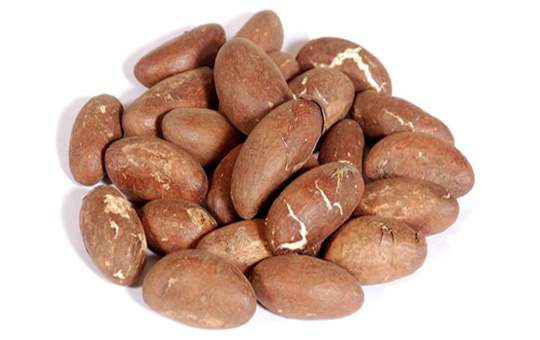Researchers Affirm Efficacy of Bitter Kola in Respiratory Diseases
Used as folklore remedies for the treatment of ailments such as liver disorders, hepatitis, diarrhoea, laryngitis, bronchitis and gonorrhoea, BEN UKWUOMA writes on the promising use of Bitter kola in the management of respiratory problems.
NIGERIAN researchers have described as promising the use of Bitter kola in the management of respiratory problems, particularly asthma, raising hopes of a possible formulation of the extracts or active constituents as medicines.
Though there are various orthodox drugs for the treatment of respiratory tract diseases in the country, the search for cost effective local herbal remedies have always excited researchers.

In fact, the seeds of Bitter kola also called Garcinia kola (GK) which forms a major part of the herbal preparation used in traditional African medicine practice for the treatment of various respiratory tract diseases, including asthma have attracted scientific scrutiny in the last decade.
In a report published recently in The Internet Journal of Pulmonary Medicine. 2009:Volume 11 Number 1, the researchers: A.K. Okojie ,I. Ebomoyi,C.N. Ekhator,O. Emeri,J. Okosun, G. Onyesu, O. Uhuonrenren, and J. Atima from the Department of Physiology, University of Benin and Ambrose Alli University Ekpoma,in a holistic review decided to find out the physiological mechanism(s) underlying the use of GK for the treatment of asthma. Specifically they were interested in finding out the function(s) of its phytochemical contents and how they are beneficial in the treatment of asthma.
At the end, they said:"Garcinia kola appears to be very promising in the treatment and management of asthma, Our review showed that xanthone and flavonoid, which are its major phytochemical contents inhibit calcium influx and histamine release stimulated by IgE dependent ligands respectively."
Used in folklore remedies for the treatment of ailment such as liver disorders, hepatitis, diarrhea, laryngitis, bronchitis and gonorrhoea, Garcinia kola belongs to the family Guittiferae and it is commonly called Orogbo in Yoruba language and Aki ilu in Igbo while the English name is bitter kola. Although valued because of its edible nut, the plant exhibits very potent pharmacological activities such as antioxidant, antibacterial, antiviral, antifungal and anti-inflammatory properties. The anti-oxidant property of GK is attributed to its very high content of ascorbic acid.
Phytochemistry of Gk has shown its content to include benxophenones, xanthones, biflavonoids, alkaloids, phenols, tannins and saponins.
It is usually found in the tropical rain forest region of West Africa. It prevails as a multi-purpose tree crop in the home gardens of southern Nigeria. It grows to a height of about 12 - 14m and produces reddish, yellowish or orange coloured fruit. Each fruit contains 2 to 4 yellow seeds and a sour tasting pulp. The seeds when chewed have a bitter astringent taste. The flowering of the plant occurs between December and January while the fruits mature between June and August.
Continued on
Page 1
Page 2
Page 3
Page 4




